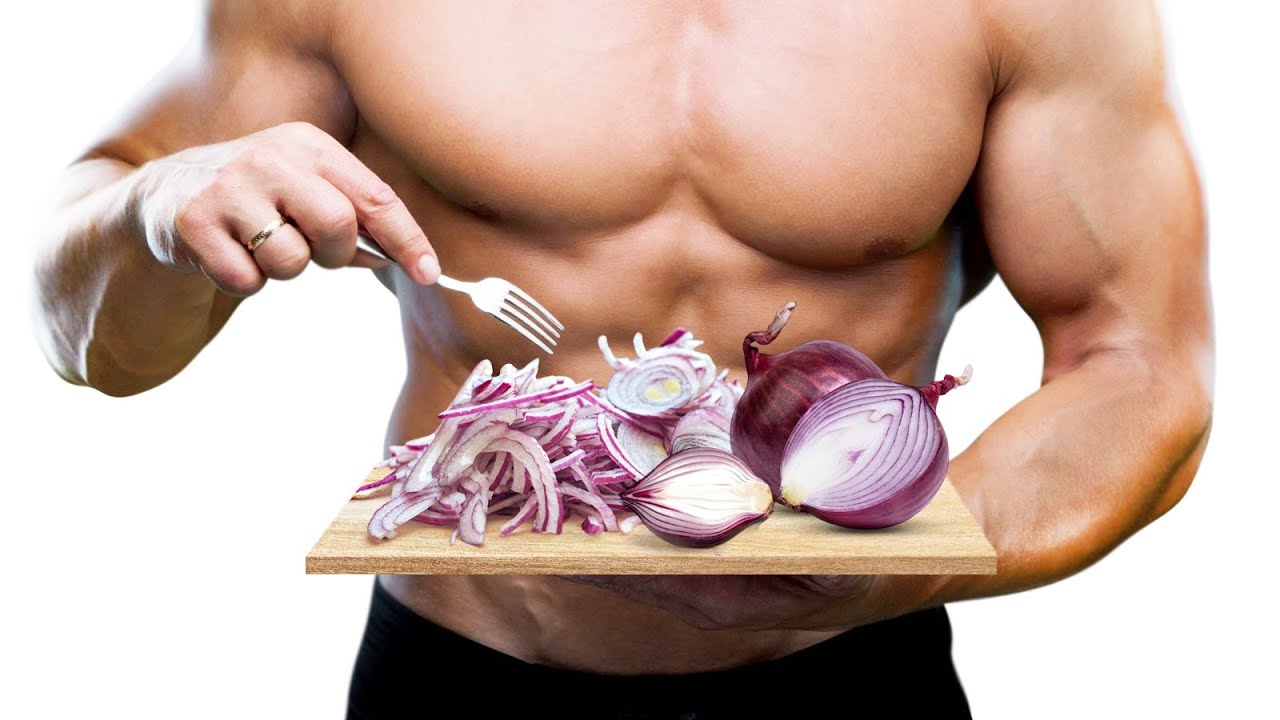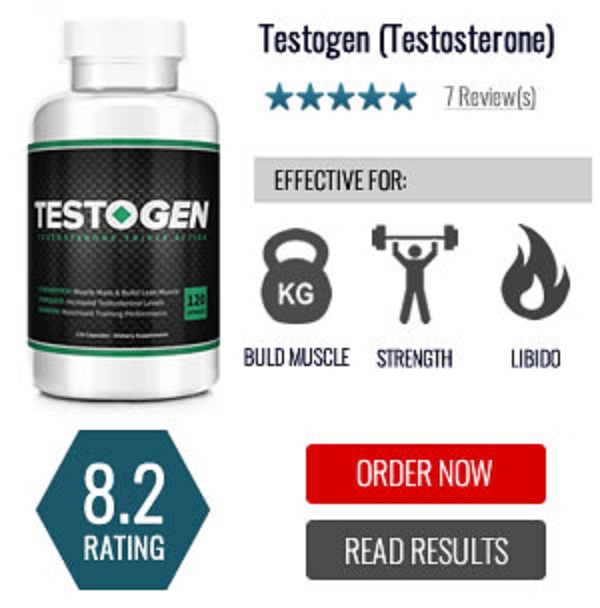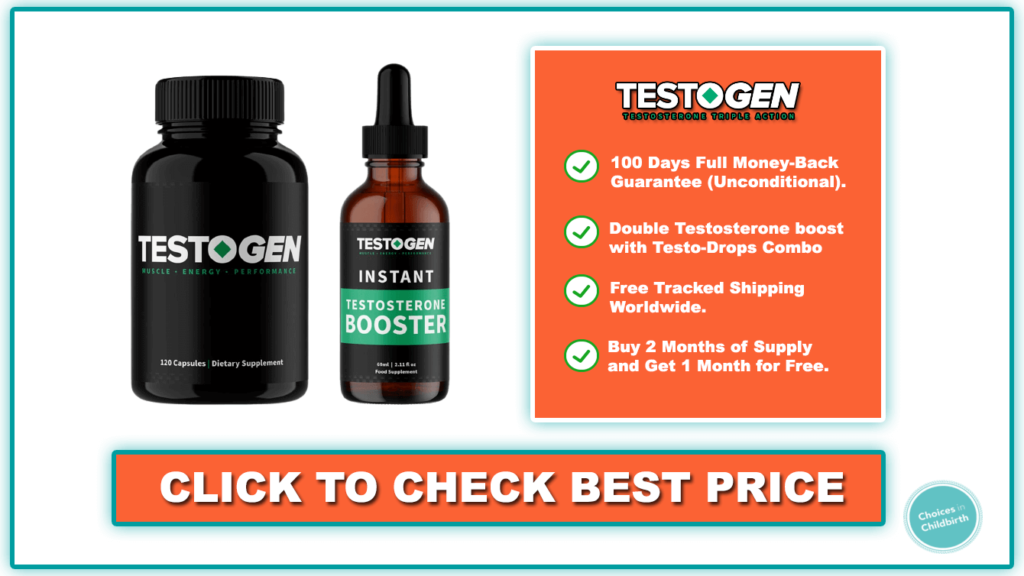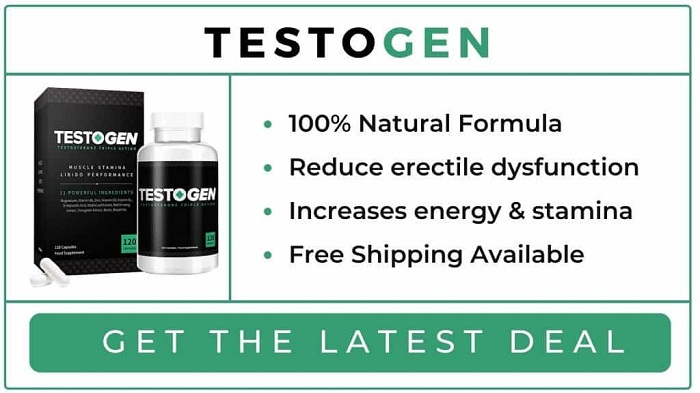Does Onion Increase Testosterone
Contents
- 1 Does Onion Increase Testosterone
- 2 Understanding Testosterone
- 3 Onions and Testosterone: Separating Fact from Fiction
- 4 Scientific Studies on Onions and Testosterone
- 5 Exploring Quercetin
- 6 Human Trials: The Missing Link
- 7 The Nutritional Complexity of Onions
- 8 Exploring the Potential of Allicin
- 9 Impact of Fiber on Hormonal Health
- 10 Sulfur Compounds and Hormonal Health
- 11 Hormonal Health Across the Lifespan
- 12 Incorporating Onions into a Hormonally Supportive Diet
- 13 Conclusion: Does Onion Increase Testosterone?
- 14 FAQs: Does Onion Increase Testosterone?
- 15 References:
In the dynamic realm of health and wellness, the pursuit of natural methods to enhance hormonal balance, particularly testosterone levels, has fueled discussions and inquiries. A notable and intriguing claim circulating in wellness circles is the potential of onions to increase testosterone. This comprehensive article aims to unravel the scientific evidence surrounding this claim, diving into the nutritional components of onions, the roles of quercetin and allicin, and the existing research landscape.
Related Post: Ashwagandha and Testosterone | Does Ashwagandha Raise Testosterone Levels
Understanding Testosterone
To contextualize the discussion, a foundational understanding of testosterone is essential. As a crucial male sex hormone, testosterone plays a pivotal role in the development of male reproductive tissues, and overall male health, and influences factors such as muscle mass, bone density, and red blood cell production.
Onions and Testosterone: Separating Fact from Fiction
Claims and Anecdotes: Anecdotal reports circulating on the internet often assert that onions can increase testosterone levels. These claims frequently stem from traditional beliefs and personal experiences, necessitating a rigorous examination through a scientific lens.
The Nutritional Profile of Onions: Onions, ubiquitous in various cuisines, boasts a rich nutritional profile. Abundant in vitamins C and B6, as well as minerals like folate and manganese, proponents argue that these nutritional elements contribute to hormonal balance, potentially influencing testosterone levels.
Quercetin and Testosterone: A specific compound in onions drawing attention to testosterone is quercetin. As a flavonoid with antioxidant and anti-inflammatory properties, quercetin’s potential implications for hormonal balance, especially in testosterone regulation, form the basis for exploration.
Scientific Studies on Onions and Testosterone

Limited Direct Evidence: Despite the intriguing components in onions, direct scientific evidence linking onion consumption to increased testosterone levels remains scarce. Much of the existing research involves animal studies or focuses on isolated compounds like quercetin, rather than investigating the effects of consuming whole onions.
The Need for Human Trials: A critical gap in understanding persists due to the absence of comprehensive human trials specifically examining the relationship between onion consumption and testosterone levels. The current dearth of such trials leaves the potential impact of onions on testosterone largely unexplored in a controlled human setting.
Exploring Quercetin
Antioxidant Properties: Quercetin, found in onions, is renowned for its potent antioxidant properties. As antioxidants neutralize free radicals implicated in various health issues, the potential contribution to overall well-being is evident. However, the direct impact of these antioxidant effects on testosterone levels necessitates further investigation.
Anti-Inflammatory Potential: Beyond its antioxidant properties, quercetin’s recognition extends to its anti-inflammatory effects. Chronic inflammation has been linked to hormonal imbalances, and a reduction in inflammation could theoretically contribute to testosterone regulation. Nevertheless, the extent of this relationship remains speculative without comprehensive human studies.
Scientific Studies on Quercetin and Testosterone: Animal Studies Several animal studies explore the potential impact of quercetin on testosterone levels. For instance, a study involving rats demonstrated that quercetin supplementation had a protective effect against testosterone propionate-induced prostate hyperplasia. Despite the intrigue, caution is warranted when translating these findings into human physiology.
In Vitro Studies: In vitro studies, conducted in a laboratory setting using isolated cells, have provided insights into potential mechanisms by which quercetin might influence testosterone. However, these studies often focus on cellular responses to quercetin rather than the complex interplay within the human body.
Human Trials: The Missing Link

Despite promising findings in animal and in vitro studies, the lack of comprehensive human trials remains a significant gap in our understanding. Human physiology is intricate, and effects observed in animals or isolated cells may not directly translate to the same outcomes in humans.
Conducting well-designed, controlled human trials to investigate the impact of onion consumption, specifically quercetin, on testosterone levels is imperative. These trials should consider factors such as dosage, frequency, and duration of onion intake to provide more accurate and applicable insights.
The Nutritional Complexity of Onions
While quercetin is a notable component, onions harbor a myriad of other compounds, each with potential health benefits. Allicin, released when onions are chopped or crushed, has been associated with antimicrobial and cardiovascular benefits. Additionally, the fiber content in onions contributes to digestive health and overall well-being.
Exploring the Potential of Allicin
Apart from quercetin, onions contain allicin, a sulfur-containing compound formed when the onion is chopped or crushed. Allicin’s focus in research stems from its potential antimicrobial properties. While its direct influence on testosterone is not well-studied, maintaining overall health through the consumption of allicin-rich foods may indirectly support hormonal balance.
Antimicrobial Properties: Allicin is well-known for its potent antimicrobial properties, demonstrating activity against various bacteria, viruses, and fungi in laboratory studies. Maintaining a healthy balance of gut flora and overall immune function is crucial for hormonal health, and allicin’s antimicrobial effects may contribute positively to these aspects.
Cardiovascular Benefits: Beyond its potential impact on testosterone, allicin has been associated with cardiovascular benefits. It may help lower blood pressure and reduce cholesterol levels, contributing to overall heart health. Cardiovascular health is closely linked to hormonal balance, and maintaining a healthy cardiovascular system is essential for optimal hormone regulation.
Impact of Fiber on Hormonal Health
In addition to quercetin and allicin, onions are rich in dietary fiber, playing a crucial role in overall health. Fiber contributes to digestive health, regulates blood sugar levels, and supports a healthy weight. These factors indirectly contribute to hormonal balance, as hormonal health is intricately linked to various aspects of overall well-being.
Sulfur Compounds and Hormonal Health
Onions, particularly in the Allium family, are rich in sulfur compounds. While specific research on the direct impact of sulfur compounds in onions on testosterone is limited, supporting the body’s natural detoxification pathways is seen as a positive influence on hormonal health.
Hormonal Health Across the Lifespan
Understanding hormonal health requires consideration of different life stages. Testosterone levels naturally fluctuate, peaking during adolescence and early adulthood, and gradually declining as individuals age. Lifestyle factors, including diet and exercise, play a crucial role in supporting hormonal health at every stage.
Incorporating Onions into a Hormonally Supportive Diet
While the direct link between onions and testosterone remains an area of ongoing research, incorporating onions into a balanced and varied diet can provide numerous health benefits. Whether consumed raw in salads, cooked in soups and stews or as a flavorful addition to various dishes, onions contribute essential nutrients and potential health-promoting compounds.
Conclusion: Does Onion Increase Testosterone?
While onions boast a rich nutritional profile and contain compounds like quercetin and allicin with potential health benefits, the direct impact on testosterone levels remains inconclusive. Scientific research, particularly human trials, is needed to establish a clear connection between onion consumption and testosterone regulation. As of now, including onions as part of a balanced and varied diet is a sensible choice, but relying solely on them for boosting testosterone may be premature.
Researchers must prioritize comprehensive human trials, considering the diverse compounds present in onions and their potential synergistic effects. Until then, the onion-testosterone relationship remains an intriguing aspect of nutritional science that requires further exploration.
FAQs: Does Onion Increase Testosterone?
Q1: Can Eating Onions Boost Testosterone Immediately?
A: No, the potential impact of onions on testosterone is not immediate. Hormonal changes typically occur gradually over time and are influenced by various factors, including overall diet, lifestyle, and genetics.
Q2: How Much Onion Should One Consume for a Testosterone Boost?
A: There is no established recommended dosage of onions for testosterone enhancement. As with any dietary change, moderation is key, and individual responses may vary.
Q3: Are There Any Side Effects to Eating Onions for Hormonal Balance?
A: Onions are generally safe for consumption and are a part of many diets worldwide. However, individuals with specific allergies or sensitivities should exercise caution. Excessive onion consumption may also lead to digestive discomfort in some cases.
Q4: Can Onions Help with Testosterone Production in Women?
A: Testosterone is primarily a male sex hormone, but women also produce it in smaller amounts. While onions contain compounds with potential health benefits, the specific impact on testosterone in women requires further research.
Q5: Are Raw Onions More Effective for Testosterone Boost than Cooked Onions?
A: Both raw and cooked onions retain their nutritional value, including compounds like quercetin and allicin. The impact on testosterone may depend on individual preferences and digestive tolerance rather than the cooking method.
Q6: Is the Testosterone-Boosting Effect of Onions Supported by Scientific Studies?
A: Scientific evidence linking onion consumption directly to increased testosterone levels is limited. While certain compounds in onions, such as quercetin and allicin, have shown potential in studies, more research, particularly human trials, is needed for conclusive evidence.
Q7: Can Onions Replace Testosterone Replacement Therapy (TRT) for Men with Low Testosterone?
A: Onions should not be considered a replacement for medical treatments like testosterone replacement therapy. Individuals with diagnosed low testosterone levels should consult healthcare professionals for appropriate guidance and interventions.
Q8: Are There Other Foods Besides Onions that Can Boost Testosterone?
A: Several foods, including those rich in zinc (such as oysters and pumpkin seeds), vitamin D (fatty fish and fortified foods), and healthy fats (olive oil and avocados), may support overall hormonal health. However, a balanced diet and lifestyle play a more significant role than individual food items.
Q9: Do All Types of Onions Have the Same Effect on Testosterone?
A: Different types of onions (red, white, yellow) contain similar nutritional components, but the specific impact on testosterone may vary. The existing research does not distinguish between onion varieties to testosterone, emphasizing the need for more specific studies.
Q10: Can Onion Supplements Boost Testosterone Levels?
A: While supplements may provide concentrated doses of specific compounds found in onions, their effectiveness in boosting testosterone remains uncertain. Whole foods, like onions, offer a spectrum of nutrients that work synergistically, and relying solely on supplements may not replicate the same effects.
Q11: Are There Any Interactions Between Onions and Testosterone-Related Medications?
A: Individuals taking medications related to testosterone or hormonal health should consult healthcare professionals before making significant dietary changes, including the incorporation of large amounts of onions, to ensure compatibility and avoid potential interactions.
Q12: Can Onions Support Hormonal Health in Ways Other Than Testosterone Regulation?
A: Yes, onions contain various compounds with potential health benefits, including antioxidant and anti-inflammatory properties. These may contribute to overall hormonal health, supporting various aspects beyond testosterone regulation.
Q13: Can Onion Consumption Lead to Hormonal Imbalance?
A: Onions are generally considered safe for consumption as part of a balanced diet. However, excessive intake may lead to digestive discomfort in some individuals. There is no substantial evidence suggesting onions cause hormonal imbalance when consumed in moderation.
Q14: Do Cooking Methods Affect the Nutritional Content of Onions Relevant to Testosterone?
A: Cooking methods can alter the texture and taste of onions, but certain nutritional components, such as quercetin and allicin, may be retained. The impact on testosterone may be more influenced by the overall diet and lifestyle rather than specific cooking methods.
Q15: Can Onions Improve Libido, Beyond Testosterone Regulation?
A: While the direct link between onions and libido requires more research, the potential overall health benefits of onions, including their nutritional content, may indirectly contribute to improved well-being, including sexual health.
These FAQs provide a nuanced understanding of the current knowledge surrounding the relationship between onions and testosterone. It is essential to approach such topics with a balanced perspective, considering individual health conditions and consulting healthcare professionals for personalized advice.
References:
- Silva C, et al. (2014). Quercetin, a flavonoid with anti-inflammatory activity, suppresses the activation of dendritic cells by an inflammatory microenvironment.
- Gorinstein S, et al. (2008). Comparison of the bioactive compounds and antioxidant potentials of fresh and cooked Polish, Ukrainian, and Israeli garlic.
- D’Cruz SC, et al. (2015). Protective effect of quercetin on testosterone propionate-induced prostate hyperplasia by way of androgenic and anti-androgenic activities.
- Lawson LD, et al. (1991). Allicin: Antibiotic, Antihypertensive, or Both? – A Structure-Activity Study.
- Ankri S, Mirelman D. (1999). Antimicrobial properties of allicin from garlic.
- Di Marco S, et al. (2012). Potential therapeutic effects of vitamin E and C on placental oxidative stress induced by nicotine: an in vitro evidence.
- Ho E, et al. (2012). Zinc deficiency induces oxidative DNA damage and increases p53 expression in human lung fibroblasts.
- Gougeon R, et al. (2012). Increase in the thermic effect of food in women by adrenergic amines extracted from citrus aurantium.
- Bassoli BK, et al. (2008). The action of dietary polyphenols on chronic diseases.
- McCormick DL, et al. (1999). Chemoprevention of rat prostate carcinogenesis by dietary 16alpha-fluoro-5-androsten-17-one (aldosterone), a minimally androgenic analog of dehydroepiandrosterone.
- Welbat JU, et al. (2019). Quercetin attenuates cognitive decline, hippocampal oxidative stress, and inflammation via AMPK/UCP2 signaling in a rat model of aging.
- Muhammad N, et al. (2018). Quercetin ameliorates inflammation and oxidative stress in cadmium-induced neurotoxicity in rats via the ERK/Nrf2/HO-1 pathway.



